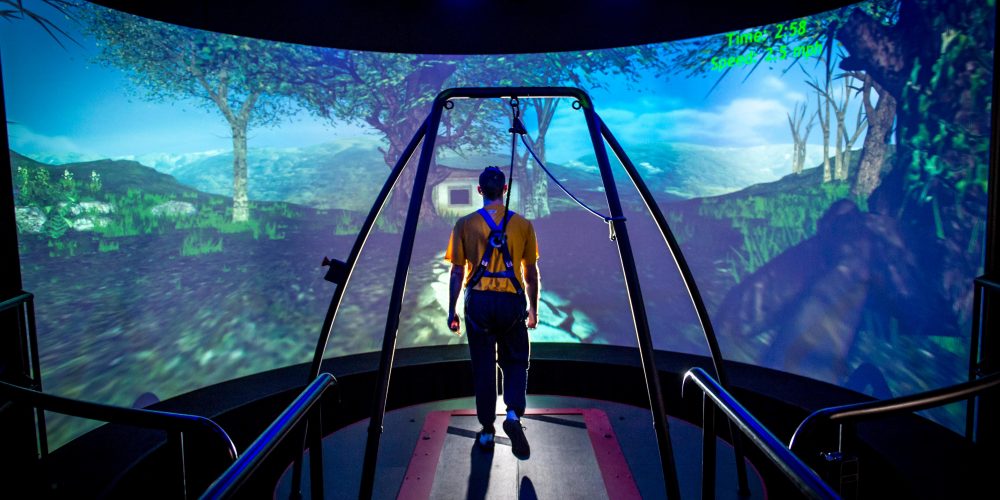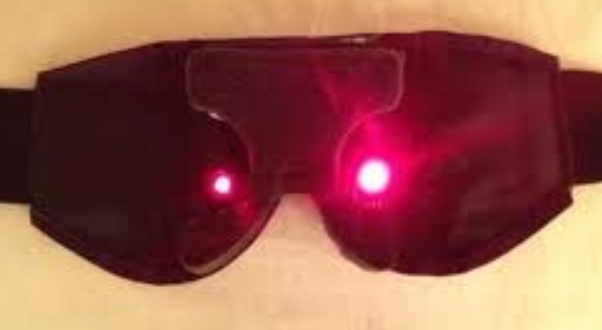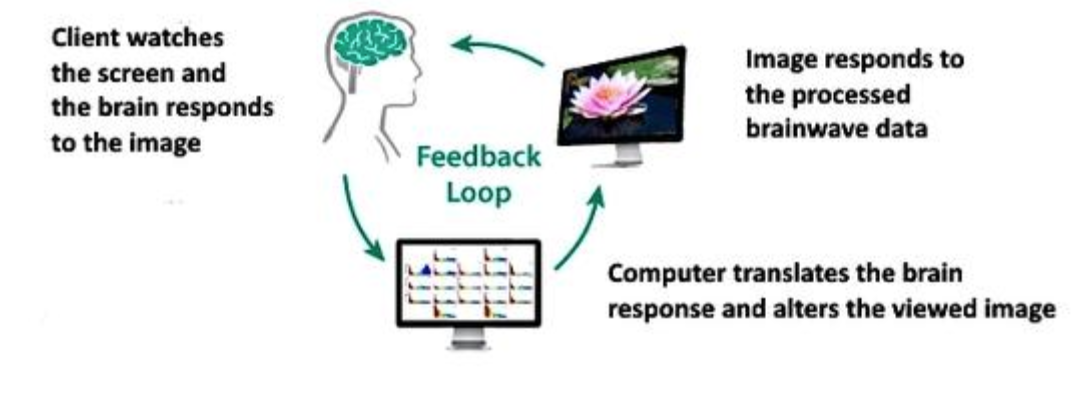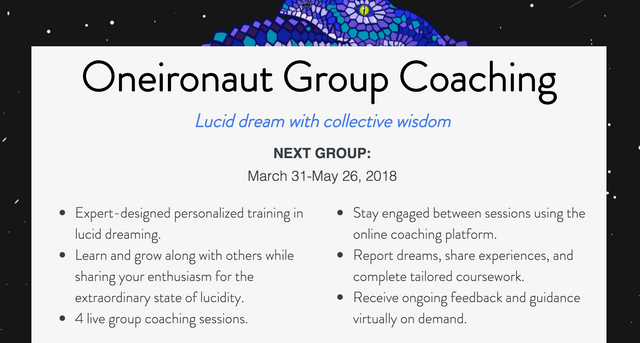The future of brain-computer-interface technology could help you lucid dream
Mental rehearsal has long been known by psychologists and behavioral scientists to better prepare the mind for performing a future task. Visualizing yourself becoming lucid in dreams is a core skill of the Mnemonic Induction of Lucid Dreaming (MILD) technique. MILD integrates several complex skills to best help you carry your pre-set intentions into your sleep and dreams, and execute them. The MILD technique, developed by Stephen LaBerge in the late 70s, has been shown to be effective in increasing how often you can visit the lucid dream world, but many questions remain as to how MILD skills can be enhanced to make entry to the lucid dream state more accessible.
Modern technology has great potential for enhancing access to the lucid dream state. The Dreamlight lucid dreaming mask (and its series of successors by LaBerge) is one example of a device that used mind-body technology to produce more lucid dreams. The device flashes light cues into your eyes during dreams which are perceived, and ideally recognized, as a dreamsign. This is a technology that has great potential for continued, multidisciplinary development. But how can developing technologies be used to enhance other core components of MILD, such as the imaginary rehearsal of recognizing dreamsigns?
A Brain-Computer Interface (BCI) involves a feedback loop between the brain's electrical activity and an external stimulus to promote learning. Basic science research of mental rehearsal recently used BCI with monkeys as a lens for studying how mentally rehearsing an action better prepared the monkey to physically perform the skill in the real world (See https://news.stanford.edu/2018/02/15/mental-rehearsal-might-prepare-minds-action).
An innovative BCI application would be to use virtual simulations of nonlucid dreams to mentally rehearse the act of recognizing dreamsigns. This, coupled with neurofeedback training to match the neurophysiological signatures of achieving lucidity in direct correspondence with the perceived BCI imagery, could further promote learning in theory. Taken further, integrating VR and AR into BCI systems could take this type of learning to a level that is even more sophisticated.
In the study, the monkey was also able to generalize the same alteration in brainwaves to take action with a similar stimulus, which is directly relevant to dreamsign recognition training since dreamsigns have many variations.
Of course, in the case of BCI-assisted lucid dreaming, science has a long way to go before it accurately captures the EEG signatures that best mimic the brain events for becoming lucid, and integrates this into a BCI system. Nevertheless, the possibilities for technology-assisted lucid dreaming are quite captivating...almost as captivating as the lucid dreaming state in itself.
Until these advancements are a reality, you can still sharpen your mental rehearsal and other induction skills without relying on fancy technologies. In fact, my Oneironaut Coaching online program (currently in beta testing) does just that so check it out.
Bio: Kristen LaMarca PhD is a teacher, researcher, and professional coach with expertise in mindfulness, brain-computer-interfaces, and the creative, therapeutic applications of lucid dreaming. She offers a variety of opportunities to receive training, consultation, or coaching in lucid dreaming for individuals and professionals. She gains her inspiration not only from her own lucid dreams but by helping others nurture their own.
Website: Mindful Lucid Dreaming
Blog: Psychology of lucid dreaming
Twitter: @luciddreamtips
Like my facebook page: Mindful Lucid Dreaming and join our private discussion group.
Meetup San Diego




Love to see where all this tech is evolving to. Great times ahead!
Yes, me too! Hope I live long enough to see it but the potential is definitely there.
It would be very interesting of we could influence dreams with technology like that. The implication in my mind, is that we will be able to understand a lot more about something as elusive as dreaming. How great would it be if we understood more about what and why we dream. I think it would give us knowledge about who we are.
Yes! There is much to learn about human consciousness by studying the dream state. Dreams have been ignored far too long in the West and from scientists, despite the fact that dreams make up a significant portion of our lives.
Lucid dreaming particularly can shine new light into the dream-state because it allows us to conduct experiments from within the dream and communicate results to researchers in real-time. I agree with you that lucidity can better help us understand who we are and what are we doing here. More practically, lucid dreaming is an underutilized tool by scientists for studying the hard problems of consciousness, and exploring the difference between top-down/internally generated aspects of experience and bottom-up/externally generated components. There is much to learn!
In the end, I do believe advancing technologies can better help us access and benefit from this state, and I'm excited to see what is to come. But I also know that most people do not have sufficient training in the induction skills that we know work, which doesn't require the aid of any equipment at all (besides your brain). So there is no need to wait for a new age in lucid dreaming tech to start having more lucid dreams.
This makes me very enthusiastic because I think if we understand dreams, I expect we also understand more about imagination and inspiration.
Lucid dreams are so inspirational! Dreaming is the most creative mental state, and lucidity not only makes creativity more accessible, but also enhances it, too. I see you are an artist yourself. Do you ever draw from your lucid dreams or regular dreams to help you with your work?
I am not sure but I believe so. Although I have not been able to dream lucid yet. So that would be regular dreams if so.
The reason why I think I probably do is because I never had no idea what to make. I think my head goes into some sort of meditation, flow, dreamstate when I create. Although sometimes when I try to take control and worry if it will be good enough I become to tense. I also have noticed (like many artists with me) that inspiration likes to come when we need to sleep.
I do dream the future now and then so I can not believe a dream is just random firing of neurons.
Sleep deprivation can easily bring on more creativity too. You should definitely look into lucid dreaming if you are ever looking for other avenues of inspiration. Once in a lucid dream, I decided to look at a piece of art I was working on in waking life to see what the end result could look like. I expected it to look the same in the dream, but it was so much more beautiful than I ever could have imagined in waking life. The final piece never ended up looking exactly like the one from the dream (I'm not that talented!) but I integrated parts of the art from the lucid dream into the real one. That will always be one of my more memorable lucid dreams.
That sounds wonderful! I see how that can be very beneficial. Thank you for giving the idea why I should go explore.
Glad to hear! I hope you will share some experiences on steem with us if you have some lucid luck.
Interesting sharing on Mindful Lucid Dreaming! Cant imagine what it would be like after integrating VR and AR with this innovative MILD technique!
MILD would be tricky to do that since you would have to wear the glasses overnight so that doesn't seem as practical, but dreamsign recognition practice (mental rehearsal, which is part of MILD) could definitely be done as a daytime practice using AR or VR.
@nightwolf just got this post resteemed to 5000 followers.
I am not a bot. Upvote this comment if you like this service
Resteemed to over 13700 followers and 100% upvoted. Thank you for using my service!
Send 0.200 Steem or 0.200 Steem Dollars and the URL in the memo to use the bot.
Read here how the bot from Berlin works.
We are happy to be part of the APPICS bounty program.
APPICS is a new social community based on Steem.
The presale was sold in 26 minutes. The ICO will start soon.
Read here more: https://steemit.com/steemit/@resteem.bot/what-is-appics
@resteem.bot
Thanks for using @inception! Follow us for more free upvotes!
Hey! Why does it say thanks for using inception? Did it autocorrect your name?
Alright, I get it... Inception in place of bidseption? That was definitely a dreamsign. Wow, bots are so creative!